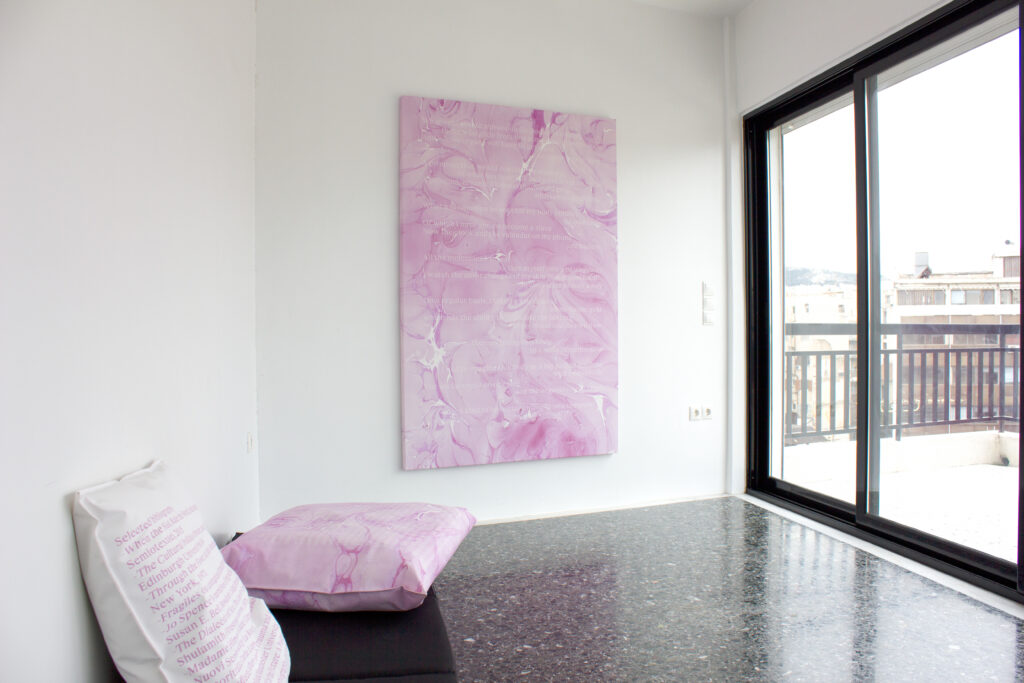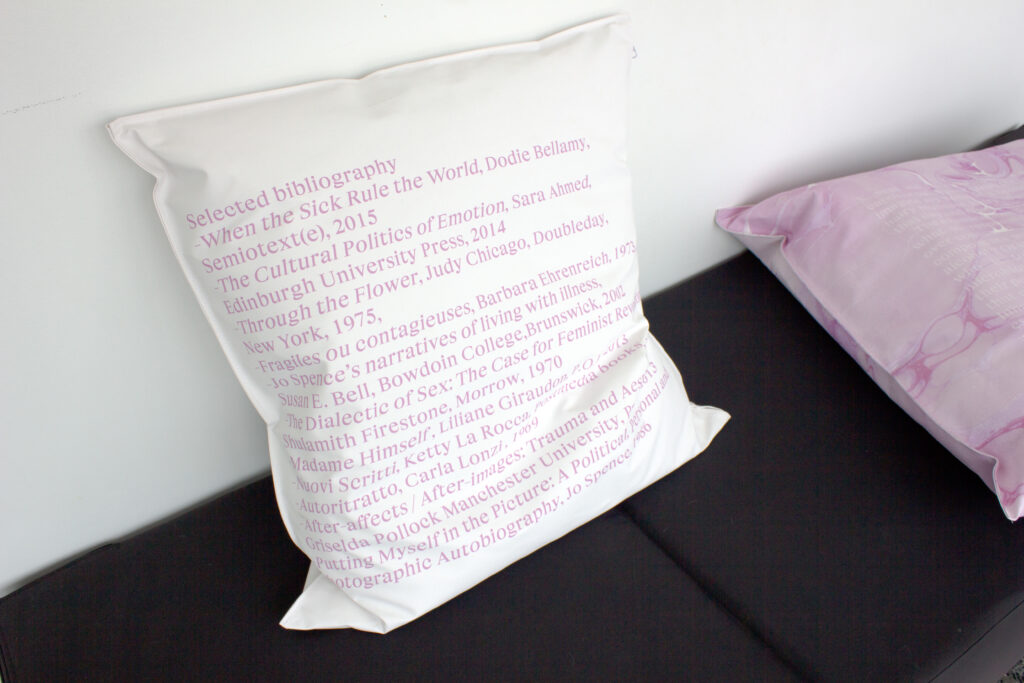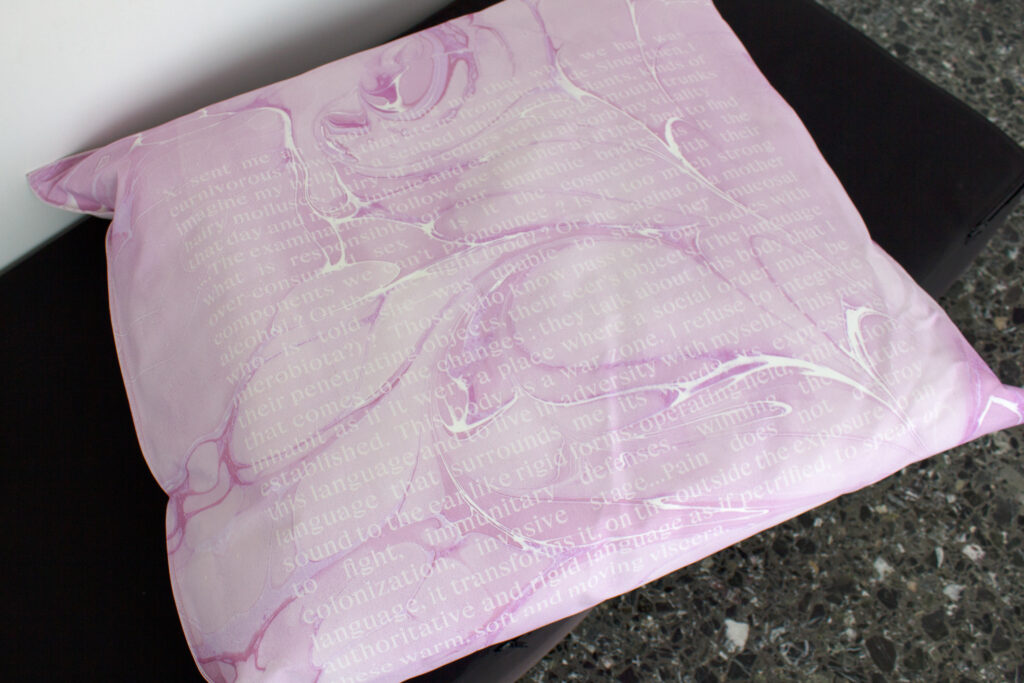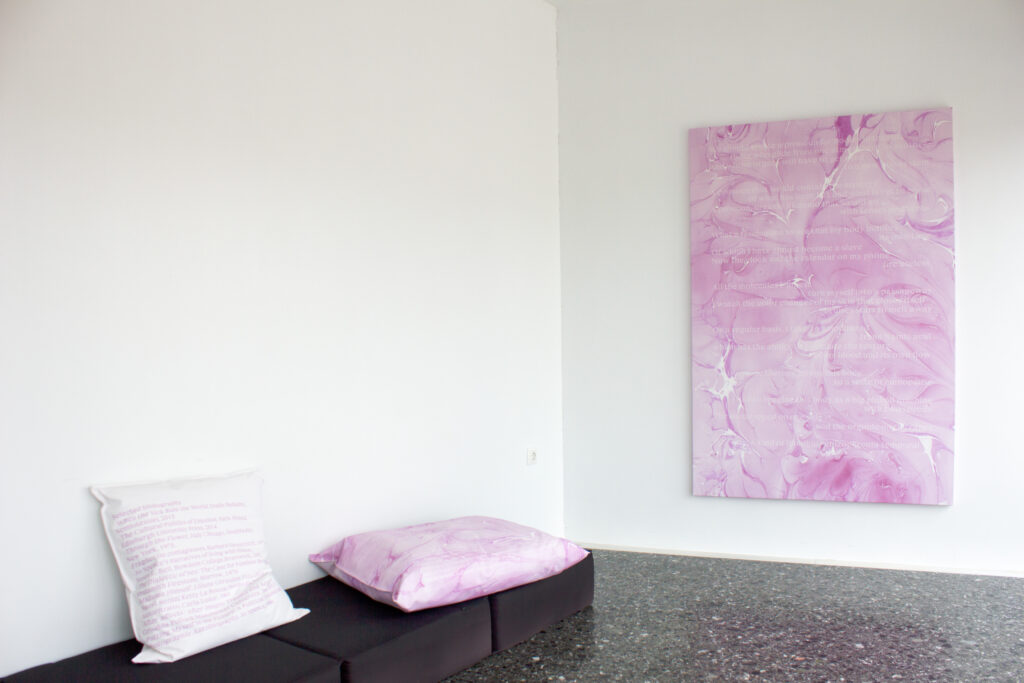180×120, 2022
180×120, Athens
05/02/2022 – 04/03/2022
Curated by Florent Frizet

The examinations follow one another as if they had to find what is responsible of our anarchic bodies: is it the over-consumed sex ? Is it the cosmetics with their components we can’t pronounce ? Is it too much strong alcohol ? Or the late night food? ? Or the vagina of a mother who is told she was unable to share her mucosal microbiota?) ? Those who know pass over our bodies with their penetrating objects, their seer’s objects. The language that comes to me changes : they talk about this body that I inhabit as if it were a place where a social order must be established. This body as a war zone. I refuse to integrate this language and to live in adversity with myself.
This new language that surrounds me, its words, its expressions, sound to the ear like rigid forms: operating field, infiltration, to fight, immunitary defenses, winning the battle, colonization, invasive stage… I think of Lilianne Giraudon who writes « I progress myself in a life that is no longer mine, I find myself locked in a body that is no longer mine, that the disease (its tools and its consequences) has made foreign but inadequate. The body is no longer an ally, it has become an obstacle, and it is from it that I advance in my vocabulary. » Pain does not destroy language, it transforms it, on the outside the exposure to an authoritative and rigid language as if petrified, to speak of these warm, soft and moving viscera.


L. sent me an e-mail telling me that what we had was carnivorous flowers that ate us from the inside. Since then, I imagine my belly as a seabed inhabited by plants, kinds of hairy molluscs, hairy of all colors with large mouth trunks that day and night inhale and exhale to absorb my vitality
….The examinations follow one another as if they had to find what is responsible of our anarchic bodies: is it the over-consumed sex ? Is it the cosmetics with their components we can’t pronounce ? Is it too much strong alcohol ? Or the late night food? ? Or the vagina of a mother who is told she was unable to share her mucosal microbiota ? Those who know pass over our bodies with their penetrating objects, their seer’s objects. The language that comes to me changes : they talk about this body that I inhabit as if it were a place where a social order must be established. This body as a war zone. I refuse to integrate this language and to live in adversity with myself.
…This new language that surrounds me, its words, its expressions, sound to the ear like rigid forms: operating field, infiltration, to fight, immunitary defenses, winning the battle, colonization, invasive stage… I think of Lilianne Giraudon who writes « I progress myself in a life that is no longer mine, I find myself locked in a body that is no longer mine, that the disease (its tools and its consequences) has made foreign but inadequate. The body is no longer an ally, it has become an obstacle, and it is from it that I advance in my vocabulary. » Pain does not destroy language, it transforms it, on the outside the exposure to an authoritative and rigid language as if petrified, to speak of these warm, soft and moving viscera.

About Our Anarchic Bodies by Colin Ledoux
There is these walking moments, in the streets of Cairo, Paris or Athens, when the body seems to fly, as if it were only a veil, a barely discernable breath, like the sigh of a plant dancing in the wind. We can’t make these moments happen, they just happen: we’re like winds in streets and our gazes transpierce everything.
I like to imagine that she entered that stationery shop in Cairo, that she felt so good she even forget her own body, that a little bell went off when the door opened and that she went to look at the notebooks, the pencils, the erasers, until she saw those printed sheets.
She wanted to know everything about them, because she had no reason to do anything but follow her desire at that very moment. Then the shop’s owners showed her how they made these marbled papers, in a workshop where the aluminum vats were a bit dented, wedged into wooden structures polished by the grease of time.
The patterns disintegrated in the vats were like comforting shapes, evoking both excerpts from medical imagery and the phantasmagorical image of the fluids that circulate in her body. She asked them to make few sheets, with whirling shapes of what she imagined was happening in her body.
This marble paper, usually used for bookbindings, transformed like this by this experience, goes with a new extract of a text in perpetual writing.
It is an autobiographical story that calls for other voices, those of women authors, like sisters who also talk about the historical stakes of their bodies.
It is a text about the disease, which like some pathologies have neither